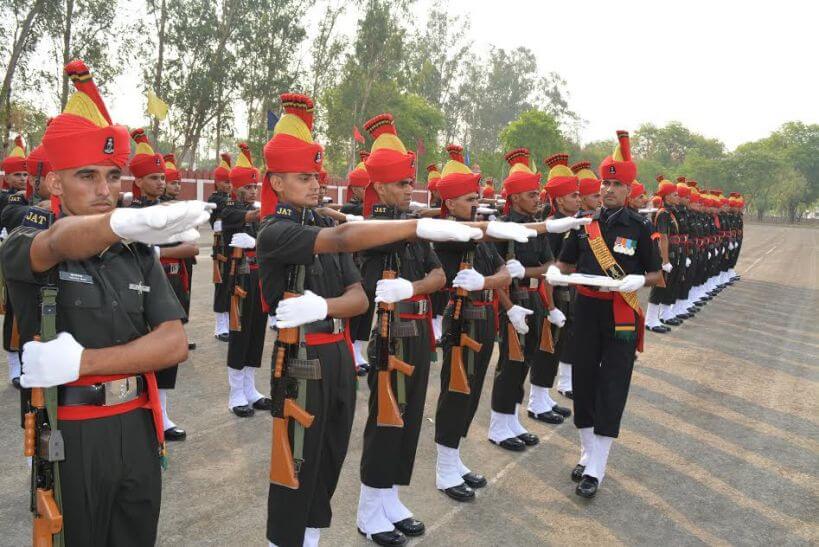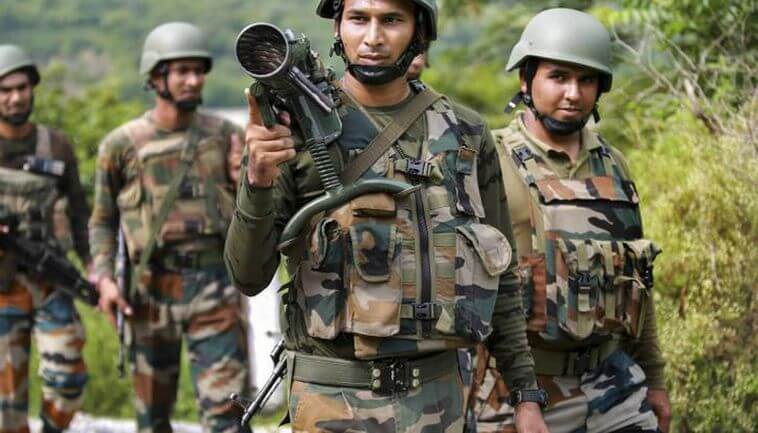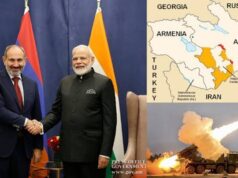The inside story: Mashkoh– Kargil as I saw it # 12
By
Brig Umesh Singh Bawa Vrc, SM

While we were in the Nowgaon sector, we were conducting Havildar to Naib Subedar promotion cadre, in which eighteen Havildars were participating. They were halfway through when we were mobilized to Mashkoh valley. So, after settling down in the new location, we once again commenced the promotion cadre. But we were not able to conduct it in a way it needs to be undertaken due to frequent interruptions and operational requirements. I knew that I could not complete their test in these trying conditions. I, therefore, had two options. The first option was to complete the test after the operations were over, and the second option was to announce the result of the promotion cadre before the operations without running the test. The first option would create uncertainty among the soldiers about the possible outcome of the cadre result. I opted for the second option as it had more advantages concerning raising the morale of these young leaders. I addressed all these havildars and told them that “from my side, all of you have passed the promotion cadre, but you have to respect my decision and give your best in the future operations of the unit. If you do not perform well, then others will question my decision of passing all of you without conducting the test. It is going to happen the first time in the history of the unit that all candidates have passed in the promotion cadre. So, for your izzat and my izzat, perform well in the operations and give your 100% to it. All of you will perform the duties of leading section commanders during the assault, and that would be your acid test in the face of the enemy.”
I knew in my heart of hearts that all of them did not deserve to pass the promotion cadre as some of them were weak professionally. But I had to be fair to all of them without any bias. All the young havildars were charged up with this news. Their comrades patted them and congratulated them, raising their morale and confidence. I need to mention here, that subsequently, the performance of these havildars in the battle is proof of their leadership skills and devotion to duty. Each one of them performed exceptionally well during the operations, and some of them earned gallantry awards too. To my surprise, those havildars I considered weak, performed beyond my expectations and displayed brave acts of grit and determination. Some of them gave up their lives fighting bravely in the battle zone and became role models for others to emulate. This raised the morale of all the soldiers and their desire to achieve success in war. It also proved a point that if you repose the trust in your subordinates, they walk an extra mile to live up to the confidence reposed in them.

The shortage of manpower was being made up by posting young soldiers from the Jat regimental centre. They were bewildered on their first posting direct to the battle zone in Mashkoh. Young soldiers usually feel apprehensive and nervous because they might very well die. Many times, battles come unexpectedly. And if it is your first battle, you might be giddy with anticipation. The young soldiers have a different persona on the battlefield, especially if it is their first one immediately after training in the regimental centre. All of them try to hide their fear. Fear does not mean cowardice. Thankfully, as soon as the action starts, they start feeling much better. There is no time to think about how you feel. Since they were greenhorns, I decided not to use them in actual combat but use them for administrative duties to carry ammunition, water, and rations for the men fighting on the top, as also casualty evacuation from the battle zone. The young soldiers were tough and did their job well.
Frankly speaking! During the early part of June, when the Indian Army had no success in its kitty, and 1 Naga, 18 Grenadiers, and 8 Sikh were helplessly trying to surround Tololing and Tiger Hill and losing men every day due to weather and enemy fire. I had unknown fear lurking on my mind – would we be able to drive away from the enemy from the top of the mountains? Will we be able to write a history for the unit or would be doomed to failure? Such thoughts often crossed my mind, but I kept them to myself. Though I had full confidence and trust in my battalion, in war, anything can happen. You can never be 100% sure of what the future lies in front of you. But after we started capturing the heights one by one, our confidence began to rise, and now we were waiting eagerly for our turn to display the grit and determination to succeed in capturing the given objective.
I was also able to speak to my wife occasionally at late midnight because that was the time when the lines were not so busy. I use to inform her about the welfare of all the officers who were present with me at the battle zone. The same was passed by her, to other lady wives staying in Delhi NCR or other places. My wife was in constant touch with most of the ladies of the unit, and they used to share the news from the front occasionally. When a family member goes to war, the impact at home can be challenging. Support from each other is essential. Coping with stressful events is easier when you speak to your caring friends. Spouses used to share their feelings and encourage each other when feeling low. The more the family members communicate with each other, the less strain they would feel. The families need to keep up routines, take time to listen to each other, and not forget to do things that make them feel good. Emotions such as fear, anger, and feeling ‘numb’ are normal and common reactions to stress. It helps to manage tension if you share your feelings.
It was evening time, and we were sitting in one of the snow tents established by the mess staff for the officers to sit around. There were few chairs laid out and a folding center table. We generally used to get together there to share our day’s progress reports on various tasks assigned to officers followed by the update from the commanding officer on the latest tactical situation. As far as I remember, myself, my 2IC, adjutant, and RMO were present that time and were waiting for other company commanders to join us to share the progress reports. My adjutant a disciplined officer was the only one carrying a helmet, which he kept neatly on the center table after entering the tent. Suddenly, at 1800 hours, we heard thunder outside our tent. It was not once but repeatedly. The enemy had started artillery shelling in our area. There was a sound like the roar of an express train, coming nearer at tremendous speed with loud singing, wailing noise. It kept coming and coming, and I wondered when it would even burst. Soon it burst with a shattering crash that made the earth tremble. It was terrible. Exploding at a distant 200 yards, the shell had gouged a hole in the ground.

It was mealtime for soldiers and the enemy chose this time to shell because he knew that men would be sitting together and eating their meals in the open. As we heard the sound of the blast, I saw all the officers scramble to dash, down, and crawl to the nearest furniture item to take cover under it. My adjutant at once grabbed his helmet and took a lying position. The quickest officer took cover in the lying position under the center table, the second-fastest got the nearest chair, and the third fastest got the farthest chair. I was quite amused to see such fast and instantaneous reactions from my officers. It is said that if you lie down, you reduce the chances of being hit by shrapnel – face down is best. I was shell-shocked due to artillery shelling and remained sitting on my chair. Luckily, it injured none of us. The shelling was over after a couple of minutes. But we all realized that we were in the battle zone and must wear our helmets every time due to frequent enemy shelling and take a lying position with face down to minimize casualties. So I passed strict orders in my battalion for everyone in the battlezone to wear helmets at all times.
To know more about the battle read the book “Mashkoh: Kargil as I Saw it”




